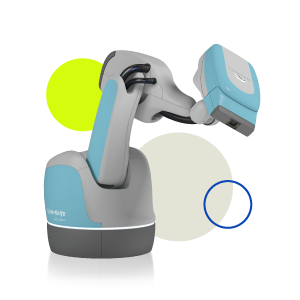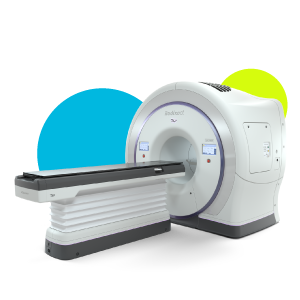Artificial Intelligence in Radiotherapy
The current state, existing barriers and tremendous promise of AI-enhanced radiotherapy
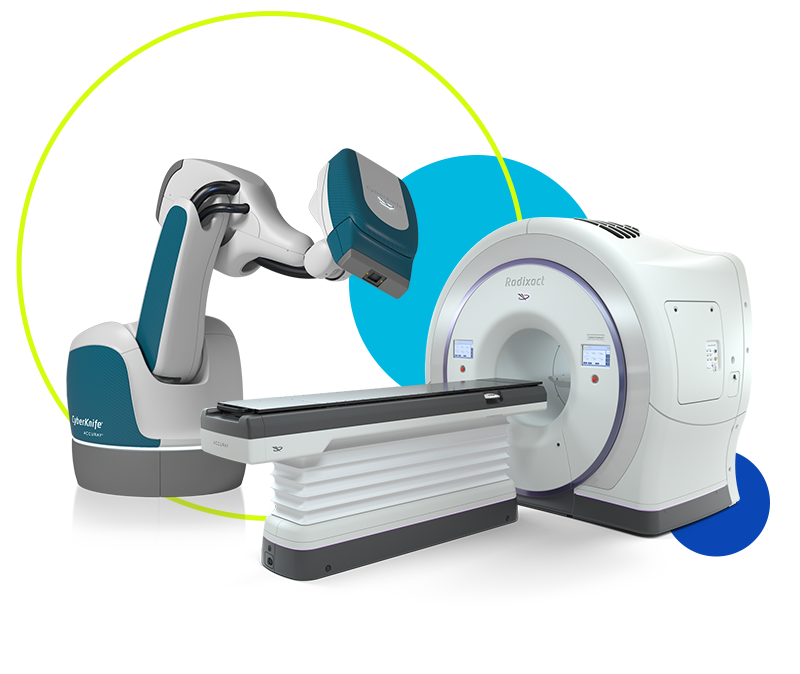
The AI Revolution is Here — and Poised to Transform Radiotherapy
Artificial intelligence (AI) innovations are rapidly redefining what’s possible in every sector, including healthcare. The field of radiation oncology was among the first to embrace the potential of AI, and the impact of AI in radiotherapy will grow exponentially in the coming decade. There’s little doubt that AI will help clinicians to deliver more personalized, more precise and more efficient radiotherapy treatments.
This e-book walks through several of the most promising use cases of AI in radiotherapy — and discusses how leading innovators are navigating the challenge of unlocking the advantages of AI, while retaining the critical control needed to ensure patient safety.
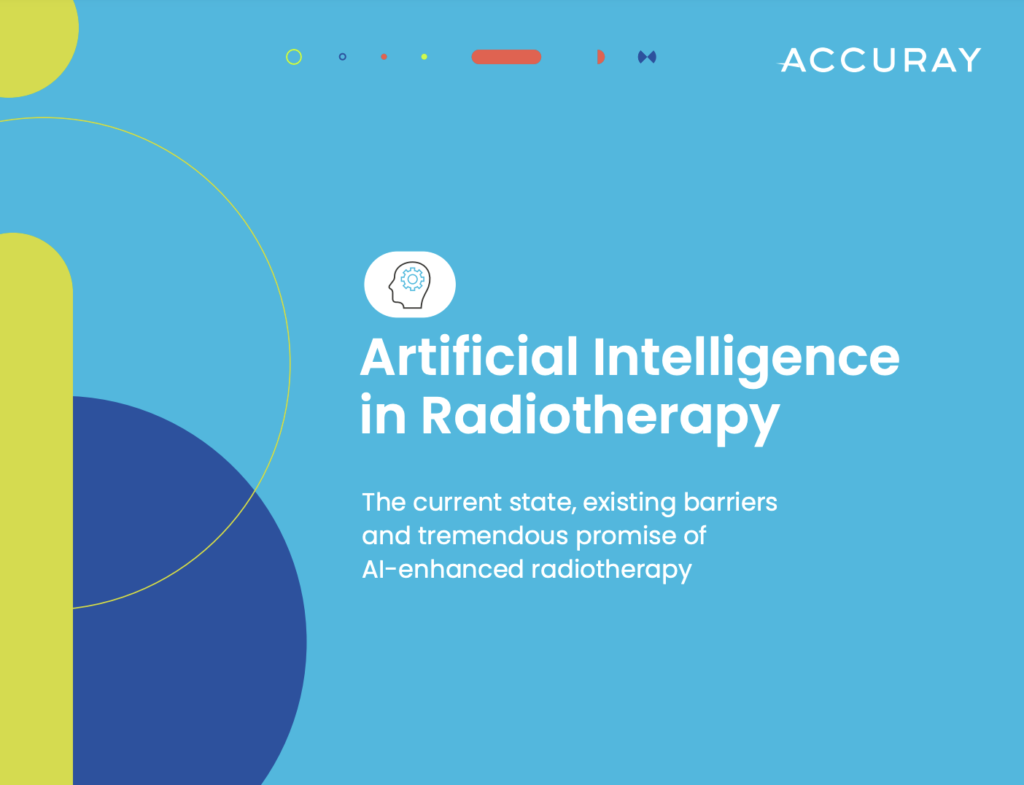
AI Will Make Radiotherapy More Human
Despite the conventional notions of AI replacing humans in various professions, the most successful and promising applications of AI focus on supporting humans. In healthcare, and in radiotherapy specifically, AI is empowering clinicians and other human staff to work smarter. AI technologies will enable the real-time digestion and analysis of near-infinite quantities of data — empowering clinicians to make data-driven decisions faster, for more accurate, more consistent and more efficient outcomes. AI will progressively enable clinicians to harness the transformative insights buried within Big Data, while balancing those data-driven insights against their unique and empathy-informed human expertise. In doing so, AI and machine learning will ultimately make radiotherapy more human, not less.
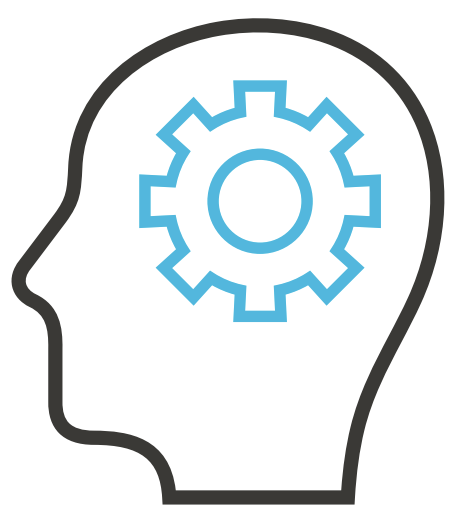
83%
of U.S, healthcare organizations have an AI strategy in place1
1 in 3
of U.S, healthcare providers are already
using some form of AI to assist in diagnosis.2
Steering the Clinical Safety of AI: The Deterministic Framework
While AI holds tremendous potential within the field of radiotherapy, the prerequisite of ensuring the safe delivery of radiotherapy — above all else — will continue to make the use of true deep learning, neural networks and other forms of unsupervised AI problematic in radiotherapy, as well as in healthcare more broadly. Leading AI innovators remain undeterred by the current barriers and long-term limitations of AI and machine learning in healthcare. These innovators are pioneering approaches to AI development that maximize the “smart” benefits of these technologies, while ensuring a transparent and deterministic framework that meets and exceeds regulatory and clinical standards for ensuring patient safety. Emerging and future use cases include motion synchronization, AI-powered contouring and segmentation, AI-enhanced treatment planning, AI-enabled real-time adaptive treatment delivery, and more.
Solving Key Challenges in Radiotherapy




Expanding Access
to Care
Better, Earlier
Diagnosis
More Personalized
Treatment
Reducing Cost
of Care
$150B ANNUALLY
Expected value of AI-powered efficiencies
in healthcare in the U.S. by 2063
3
Accuray Legacy of AI Leadership
Hundreds of radiotherapy practices around the globe have been using AI-enhanced treatment delivery technology for well over a decade. Accuray pioneered Synchrony® technology more than 15 years ago, enabling AI-powered real-time motion synchronization to track, detect and automatically correct for patient and tumor movement during radiotherapy treatment delivery. Today, Accuray is continuing to lead the way in bringing the promise and potential of AI to the field of radiotherapy. Our innovation roadmap charts a confident course toward AI-powered contouring and segmentation, AI-enhanced treatment planning and AI-enabled real-time adaptive treatment delivery.


